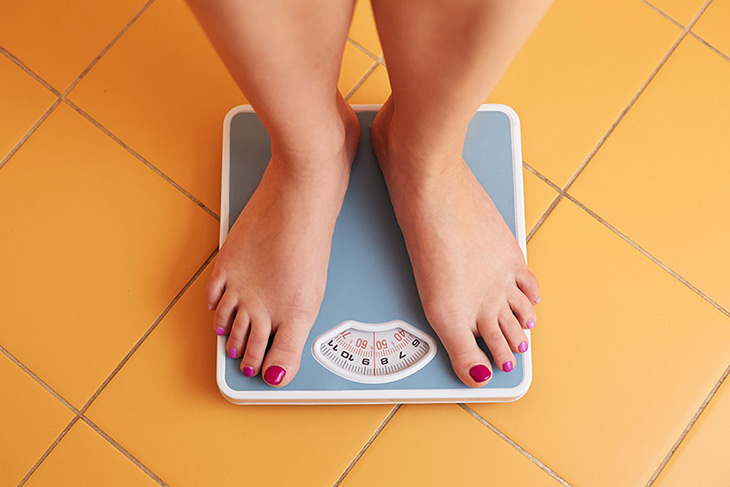Are your bath scales telling the truth?

Do you sometimes step on the scales after a week of eating well and wonder where you went wrong? Have you ever weighed yourself the morning after a big night out and despaired about how it can take a week to lose half a kilo but only a few hours to gain 2kg? What’s the deal with these unfair weight fluctuations?
The good news is that it is almost impossible for a sudden extra weight gain to be fat. True weight gain is slow, just as true weight loss takes time. So, what’s happening? What causes your weight to drop one day and shoot up the next?
When you get on the scales you don’t just weigh your organs, muscles, bones and fat, you weigh everything in your body at that time, including:
- the water in your system
- the liquids you’ve recently taken in
- the undigested food you’ve eaten
It’s these things that can cause the big fluctuations.
Water in your system
A glass of water weighs around 250g. When you drink a glass there is an immediate impact on the scales. Add some salty food into the mix and chances are you’ll see some even higher numbers. Sodium is like a magnet for water: it attracts and holds onto it.
There are other factors that encourage your body to retain extra water. Medications like high blood pressure and anti-inflammatory drugs are one. Hormones can also play a part. The ebbs and flows of female hormones throughout the month are often mirrored by the ebbs and flows of water retention.
Paradoxically, drinking insufficient water is another cause of water retention. When your body senses it is becoming dehydrated, it retains as much fluid as it can.
Carbohydrate reserves
Your body stores carbohydrate for later use as glycogen in the liver and muscle tissue. Glycogen holds water in a ratio of 3g of water to 1g of glycogen, which makes it bulky and heavy.
Your body constantly depletes and replenishes this store of glycogen and water. When you are losing weight, your reserves are low most of the time. When you refuel, your body replenishes them along with the accompanying water.
Weigh yourself when your glycogen stores are low and you will see a much lighter result to when they are topped up. This is not fat, but a fluctuation brought on by your body’s natural processes.
Food weight
If you step on to the scales while holding a sandwich, you will weigh more than when you are empty handed. If you eat the sandwich, you will carry its weight until it is digested.
However, food weight and energy density are not equivalent.
You are likely to gain weight if you eat 1kg of butter because it yields around 29,000 kilojoules, which is more extra energy than you can expend in 1 day.
If you eat 1kg of lettuce, however, you will only hold onto the extra weight for the time that it takes for it to work its way through your system and come out the other side. The calorie yield is so low, it is easily burned up.
Post workout
Exercise combines water loss from perspiration and respiration with glycogen loss.
Straight after a workout your weight is likely to be down, but these good numbers only last as long as your next drink, your next meal, or both.
Dealing with upsetting fluctuations
The day after you’ve had a night off your healthy eating plan is the worst time to weigh yourself. Depending on the amount of sodium in your meal, you could be retaining water, along with the extra weight from undigested and uneliminated food.
If you are likely to be discouraged, stay away from the scales for a couple of days after a night off.
For those other times when there seems to be no reason for the fluctuation, think about what’s been happening in the previous few days:
- Are you constipated?
- Have you eaten something salty?
- Were you dehydrated the last time you stepped on the scales?
Tips for weighing yourself
Use the same scales at the same time each week while wearing the same clothes, or none at all.
Take your waist measurements each week. If the scales go up but your waist measurements stay the same, you know it is fluid rather than fat your cells are holding.
